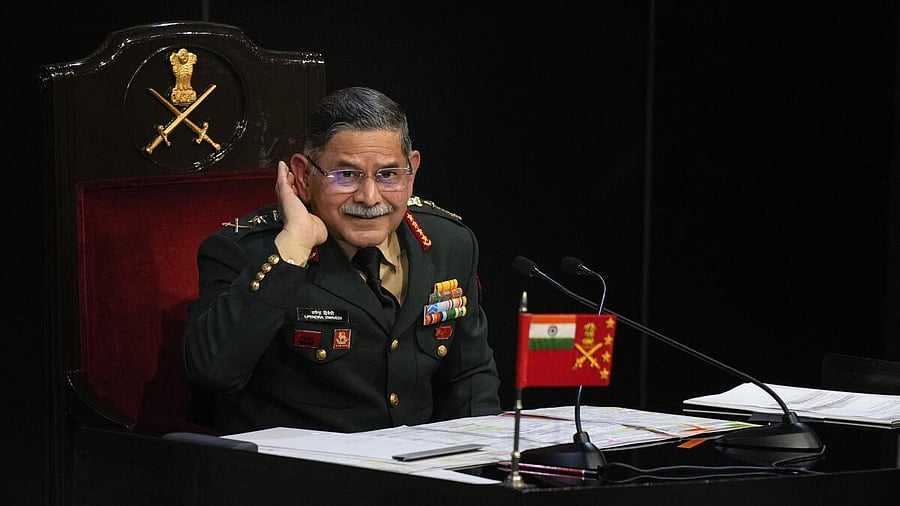
Chief of Army Staff General Upendra Dwivedi addresses the annual press conference, ahead of the 77th Army Day, in New Delhi.
Credit: PTI Photo
New Delhi: The ground situation along the Line of Actual Control (LAC) remains “stable but sensitive” and the Indian Army is not withdrawing the troops deployed near the disputed boundary between India and China, Army Chief Gen Upendra Dwivedi said on Monday.
Gen Dwivedi said commanders on the ground have been delegated power to handle “trivial issues and minor frictions” so that they couldn’t turn into big issues. Also, the force is looking at the possibility of holding corps commander level meetings between the Indian and Chinese PLA forces in the Northeast, but a directive has to come from the government.
“The situation along the LAC remains stable but sensitive. There have been a series of meetings. Even the Prime Minister met the Chinese head of the government. But a degree of stand-off still exists,” Gen Dwivedi said ahead of Army Day on Jan 15.
After more than four years, troop disengagement happened at Demchock and Depsang — the last two friction points — in October, allowing soldiers to go back to the areas they used to patrol before April 2020, when the India-China confrontation started.
“Two rounds of verification patrolling have been conducted by both sides with satisfaction. We have also mutually agreed to give access to grazing grounds. Earlier, such access was not granted, fearing aggravation of the situation,” he said.
Asked about cutting down on the number of soldiers deployed along the LAC, Gen Dwivedi said, “Troop deployment depends on the capability of the other side. Along the LAC, the number of troops in the winter months generally goes down (compared to summer months) and there will not be any change in that number.”
Before the onset of summer of 2025, the forces will review the ground situation against the backdrop of official meetings that are to be held in the next few months between the two sides before taking a call.
On the issue of buffer zones at friction points, Gen Dwivedi said while there were no buffer zones per se, there were certain areas that both sides refrained from visiting, fearing chances of violence going up.
“The trust between the two sides has to have a new definition. There is a requirement for us to sit together and come to a broader understanding of how we want to calm down the situation and restore the trust,” he said.
On terrorist attacks in Jammu and Kashmir, Gen Dwivedi as many as 73 terrorists were killed by security forces said in 2024 and 60% of these terrorists were Pakistani.
“Terrorism in Jammu and Kashmir is orchestrated by the epicentre of terrorism, Pakistan. Nearly 80% of terrorists active in J&K are Pakistani,” he said.
